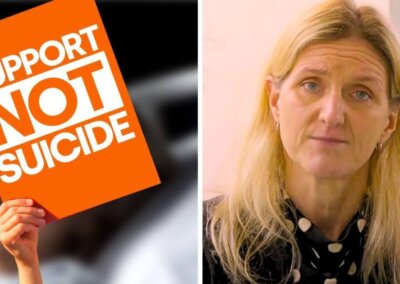Ahead of the assisted suicide debate in the House of Lords this Friday, the former Prime Minister Gordon Brown, has spoken out against a change in the law arguing that “the bill to legalise assisted dying gets the balance wrong between individual autonomy and the sanctity of life”.
Baroness Meacher’s Assisted Dying Bill is set to receive its Second Reading on 22 October and Gordon Brown is the latest to add his voice to the debate.
Palliative care
In an article for The Times, Mr Brown argues that, while all sides of the debate feel compassion “for those suffering painful deaths”, “advances in palliative care” and “directives against over-treatment […] have weakened the case for an abrupt change in the law”.
Mr Brown was influenced by Dame Cicely Saunders, “whose pioneering and courageous work in hospice care has since led to one of the greatest developments in medicine in recent times: the dramatic rise of the speciality of palliative care”.
Palliative care, the former PM went on to state, is mainstream in modern medicine. He said that Dame Saunders’ work “showed how the last months and days of someone’s life really can be relatively pain-free, dignified and worth living”.
He went on to say: “When I think of the kind of care my wife, Sarah, and I saw at first hand when we did some voluntary work in our local hospice, and the compassionate way that sensitive doctoring and nursing responded to individual wishes without undermining the sanctity of life, I am sure that there is such a thing as a dignified death”.
The need to reduce fear and the slippery slope
He also argued that the Government has a role to play in minimising “the fear of dying badly” and “to reduce the fear of over-treatment”.
In accord with what has already happened in other jurisdictions, Mr Brown warned about the “slippery slope” saying that “over time legislators […] would be unable to resist the erosion of the safeguards against the taking of life”.
“If the guiding principle is […] one of relief from intolerable suffering, is there a case for a time limit at all if we accept the obvious truth that the longer the suffering, the stronger the case for such relief grows?”
Opposition to assisted suicide
In a rare joint letter, Justin Welby, the Archbishop of Canterbury, Cardinal Vincent Nichols, the Roman Catholic Archbishop of Westminster, and Chief Rabbi Ephraim Mirvis have also voiced their opposition to making assisted suicide legal.
“All people of faith, and those of none, can share our concern that the common good is not served by policies or actions that would place very many vulnerable people in more vulnerable positions”, they said, adding that better palliative care was needed. “We believe that the aim of a compassionate society should be assisted living rather than an acceptance of assisted suicide”.
Assisted suicide was most recently debated and rejected in Parliament in 2015 by 330 votes to 118.
Right To Life UK spokesperson, Catherine Robinson, said: “Mr Brown is right to emphasise the importance of palliative care. Choices at the end of life are not limited to a slow, painful death or an assisted suicide. Palliative care is able to provide the relief and support at the end of life that we all want”.
“Last month, MPs and members of the House of Lords heard from a number of doctors from jurisdictions that had already legalised assisted suicide and/or euthanasia. They all confirm Mr Brown’s fears about the slippery slope and the expansion of the law: they said, in jurisdictions that legalise assisted suicide, the law usually expands beyond those who are terminally ill”.
“It almost always applies to a restricted group of vulnerable persons who are close to death, and soon enough it applies to others. In Belgium, the legislation has extended to children under certain circumstances; in Canada, the law is no longer restricted to those who are terminally ill. If Britain were ever to introduce assisted suicide, it is almost inevitable that exactly the same thing would happen here too”.










